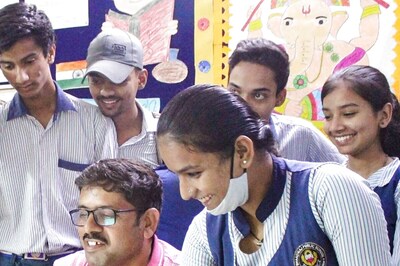
views
National Akshaya Urja Diwas is celebrated every year on August 20 to mark the birth anniversary of former Prime Minister, late Rajiv Gandhi. This effective mass awareness campaign about renewable energy was first observed on August 20, 2004, by the Ministry of New and Renewable Energy all across the country. Bharat Ratna Rajiv was the youngest prime minister of India. In his tenure of five years from 1984 to 1989, he laid the foundation of a modern India. He made some revolutionary policies to take the country to the 21st century. However, he wasn’t able to implement his ideas as he was assassinated in 1991 at the very young age of 46 years. On his birth anniversary, here are the 5 revolutionary policies by the late prime minister for the development.
TELECOM REVOLUTION
Late Rajiv is known as the architect of digital India as well as the ‘Father of Information Technology and Telecom Revolution of India.’ His one of the revolutionary steps was establishing Centre for Development of Telematics (C-DOT) in August 1984 to meet the needs of the Indian telecommunication network. The C-DOT revolutionised the communication network in urban as well as rural areas. The revolution the PCO (public call office) was introduced to connect the remote areas. In 1986, he also established the MTNL (Mahanagar Telephone Nigam Limited) to spread the telephone network.
COMPUTERISATION
Another revolutionary policy was computerisation. The late prime minister promoted science and technology along with other associated industries. He reduced import quotas, taxes and tariffs on industries, like computers, airlines, defence and telecommunications. The Indian Railways was modernised by introducing computerised railway tickets.
Also read: Indian Akshay Urja Day 2021: History and Significance of the National Renewable Energy Day
VOTING AGE
Rajiv was the one who allowed the larger participation of youths in electing representatives by reducing the voting age from 21 years to 18 years. He being the youngest prime minister believed in youth’s contribution to the development of the nation.
PANCHAYATI RAJ INSTITUTION
He is also credited for laying the foundation of Panchayati Raj institutions in order to establish democracy at the grassroots level. Though PRI was created by the 73rd and the 74th Amendments to the Constitution in 1992, a year after Rajiv was assassinated, the foundation was led by him.
NATION POLICY ON EDUCATION
National Policy on Education (NPE) was introduced by Rajiv in 1986 with an aim to modernise and expand the higher education programmes across the country. Residential schools like Jawahar Navodaya Vidyalayas was established under the NPE to provide free residential education from grades six to twelve to the rural population.
Read all the Latest News, Breaking News and Assembly Elections Live Updates here.




















Comments
0 comment